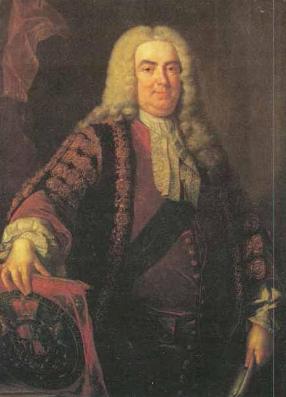poj3126(bfs)
来源:互联网 发布:java urlencode转码 编辑:程序博客网 时间:2024/06/06 00:23
http://poj.org/problem?id=3126
Prime Path
Time Limit: 1000MS Memory Limit: 65536KTotal Submissions: 20847 Accepted: 11609
Description
 The ministers of the cabinet were quite upset by the message from the Chief of Security stating that they would all have to change the four-digit room numbers on their offices.
The ministers of the cabinet were quite upset by the message from the Chief of Security stating that they would all have to change the four-digit room numbers on their offices. — It is a matter of security to change such things every now and then, to keep the enemy in the dark.
— But look, I have chosen my number 1033 for good reasons. I am the Prime minister, you know!
— I know, so therefore your new number 8179 is also a prime. You will just have to paste four new digits over the four old ones on your office door.
— No, it’s not that simple. Suppose that I change the first digit to an 8, then the number will read 8033 which is not a prime!
— I see, being the prime minister you cannot stand having a non-prime number on your door even for a few seconds.
— Correct! So I must invent a scheme for going from 1033 to 8179 by a path of prime numbers where only one digit is changed from one prime to the next prime.
Now, the minister of finance, who had been eavesdropping, intervened.
— No unnecessary expenditure, please! I happen to know that the price of a digit is one pound.
— Hmm, in that case I need a computer program to minimize the cost. You don't know some very cheap software gurus, do you?
— In fact, I do. You see, there is this programming contest going on... Help the prime minister to find the cheapest prime path between any two given four-digit primes! The first digit must be nonzero, of course. Here is a solution in the case above.
1033The cost of this solution is 6 pounds. Note that the digit 1 which got pasted over in step 2 can not be reused in the last step – a new 1 must be purchased.
1733
3733
3739
3779
8779
8179
Input
One line with a positive number: the number of test cases (at most 100). Then for each test case, one line with two numbers separated by a blank. Both numbers are four-digit primes (without leading zeros).
Output
One line for each case, either with a number stating the minimal cost or containing the word Impossible.
Sample Input
31033 81791373 80171033 1033
Sample Output
670
一道水题好气,一开始没用vis标记T了两次,然后bfs调用了两次。愚蠢啊。。。。
题意:给定两个四位质数a,b,每次只能改变a的一位数且改变后仍是质数,求a变换到b的最小步数,不存在输出Impossible。
题解:先素数打表,然后bfs每一位数的0-9。
代码:
#include <iostream>#include <cstring>#include <cstdio>#include <queue>#define MAXN 10000using namespace std;int a,b;int primes[MAXN],tot=0;bool isPrime[MAXN];bool vis[MAXN];struct node{int dig[4];int step;};void getPrime(){ memset(isPrime,true,sizeof(isPrime)); for(int i=2;i<MAXN;i++) { if(isPrime[i]) primes[++tot]=i; for(int j=1;j<=tot;j++) { if(i*primes[j]>=MAXN) break; isPrime[i*primes[j]]=false; if(i%primes[j]==0) break; } }}int renum(node a){return a.dig[0]*1000+a.dig[1]*100+a.dig[2]*10+a.dig[3];}int bfs(){node now;now.dig[0]=a/1000;now.dig[1]=a/100%10;now.dig[2]=a/10%10;now.dig[3]=a%10;now.step=0;vis[renum(now)]=1;queue<node>q;q.push(now);while(!q.empty()){node now=q.front();q.pop();if(renum(now)==b)return now.step;for(int i=0;i<4;i++){for(int j=0;j<=9;j++){if(i==0&&j==0) continue;node next=now;next.dig[i]=j;if(vis[renum(next)]||!isPrime[renum(next)]) continue;vis[renum(next)]=1;next.step++;q.push(next);}} }return 0;}int main(){int t;getPrime();scanf("%d",&t);while(t--){scanf("%d%d",&a,&b);memset(vis,0,sizeof(vis));if(!isPrime[a]&&!isPrime[b]){puts("Impossible");continue;}int num=bfs();if(num==-1){puts("Impossible");continue;}printf("%d\n",num);}}阅读全文
0 0
- POJ3126 BFS
- poj3126 bfs
- poj3126 bfs
- poj3126 BFS
- poj3126(bfs)
- poj3126 bfs
- POJ3126 (bfs)
- poj3126 - bfs
- poj3126(bfs)
- poj3126-prime+BFS
- 0.8poj3126(bfs)
- [POJ3126]Prime Path+BFS
- POJ3126 Prime Path(bfs)
- POJ3126 Prime Path(BFS)
- poj3126 prime path bfs
- bfs poj3126 Prime Path
- poj3126 Prime Path【bfs】
- poj3126 埃式筛法+bfs
- 2017 计蒜之道 初赛 第一场 阿里的天池任务(简单)
- Java调用热敏票据打印机打印小票
- RELU 激活函数及其他相关的函数
- 树形结构
- 表结构 shopnc
- poj3126(bfs)
- 《深入理解Java虚拟机》个人读书总结——垃圾收集/回收算法
- 程序员面试金典:双栈排序、二叉平衡检查、输出单层节点
- MySQL 中 You can't specify target table '表名' for update in FROM clause错误解决办法
- javascript的this指向
- 数组中只出现一次的数字(java版)
- SVN---开发必用
- (80)蓝图剖析
- Spring 设计模式之适配器


